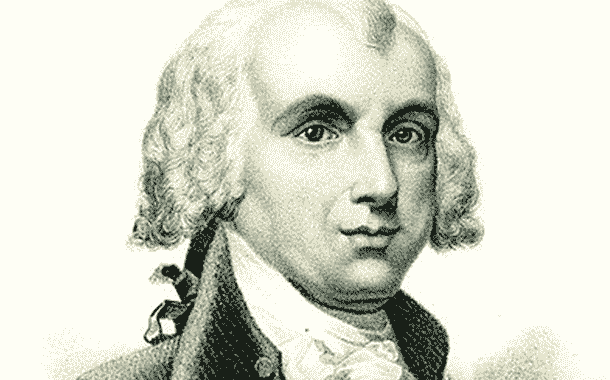<![CDATA[On the 13th October 1812, one of the most important battles of the War of 1812 took place near the Niagara Frontier, in Ontario, Canada. The Battle of Queenstown Heights would go on to be hugely significant in the course of the war; defeat took a heavy toll on US forces, with over a thousand soldiers killed or captured, and ultimately signalled the end of US territorial ambitions in Canada. Although perhaps overshadowed by other conflicts of this period, the war itself would go on to be hugely significant in the establishment of Canadian and American national identities, as well as symbolising the decline of European influence in North America. As with so much of the history of the early nineteenth century, the origins of the War of 1812 are linked to the Napoleonic Wars in Europe. In response to Napoleon's attempted blockade of Britain with the Continental System, Great Britain had ordered that all neutral ships entering Europe would need to obtain a licence. The British victory at the Battle of Trafalgar in 1805 meant it was possible for the Royal Navy to rigorously enforce its blockade of France, this meant that any US ships wanting to trade with Europe could be stopped and searched. Britain's naval strength meant that it was increasingly taking on the role of international policeman of the seas. Although justified by the blockade of France, American ships were frequently stopped and checked for contraband, or deserters from the Royal Navy. The search for naval deserters led to the Chesapeake Affair in May 1811. The British ship HMS Leopard opened fire on the Chesapeake and boarded the ship looking for deserters. Three US sailors were killed in the incident, heightening tensions between the US and Great Britain. The British interference in American international trade was one cause of the war, but the United States' expansionist designs were just as significant. An influential group of Republican Congressmen, dubbed 'the War Hawks', wanted war to counter the economic distress caused by the British blockade, but also to retaliate against perceived British support for Native Americans who were resisting the United States' western expansion. What's more, the US president James Madison was alerted by the analysis of General Dearborn that Canada was poorly defended, and that its inhabitants would be supportive of the US chasing the British out of the territory. On 18th June 1812, Madison signed a declaration of war against Great Britain. Ultimately, the US president seems to have greatly underestimated how well fortified Canada was, and how much support aboriginal populations had for the British in defending Canada. The initial months of the war proved catastrophic for the United States. They failed to make any major territorial gains in the Canadian territories, while British counter attacks had led to the United States surrendering Detroit and the Upper Mississippi territory. The US offensive at Queenstown Heights was an attempt to make a decisive foothold in Canadian territory before the onset of winter. The initial US force greatly outnumbered the British forces, however strong artillery bombardment delayed the US progress across the Niagara River enough for British reinforcements to arrive. The US forces received no reinforcements from south of the border, a problem compounded by the fact that a large part of the US militia were reluctant to fight on foreign soil. A heavy defeat ensued, and the only benefit the US took from the offensive was the death of a key British General; Isaac Brock. Peace was agreed on Christmas Eve 1814, at the Treaty of Ghent. All territorial gains made by both sides were reversed, with the status quo in terms of the US-Canadian Border being restored. It is difficult to pinpoint winners in the conflict. The US failed to make the territorial gains it wanted in Canada, and the treaty of Ghent failed to resolve the maritime disputes with Britain. Perhaps the gravest consequences befell the native populations of North America however. Once peace was agreed, Great Britain swiftly reduced its support of the 'First Nations'. The US was thus able to continue its Western expansion throughout the nineteenth century. For Canada, the war could be interpreted as the beginnings of the creation of a national identity. Canadian civilian militias had played an important role in Great Britain's victory in the war. They may have remained under the yoke of Great Britain after the war ended, but the seeds of Canadian nationalism had been sown, which would gradually sprout into increasing independence. What's more, a cohesion and cultural identity started to form, independent of Britain or the US. Compared to the earlier War of Independence, and the Napoleonic War that overshadowed much of history in this period, the War of 1812 is often neglected. The biggest consequence is perhaps seen in the United States and Canada starting to distinguish themselves from their European ancestors. The war's origins might have been connected to Napoleon's actions in Europe, but by its end Canada and the United States were on the path to forging a history separate from events in Europe. ]]>
The Battle of Queenstown Heights
